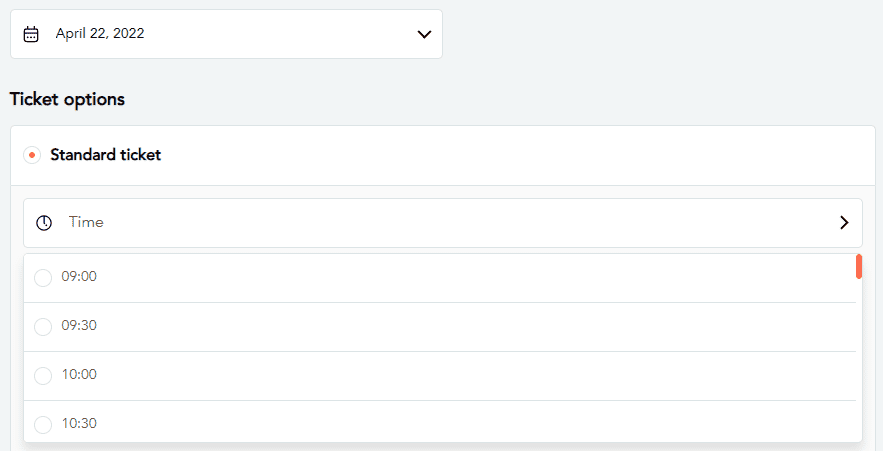Timeslots and languages
After a customer has selected a valid ticket option for a date, the available timeslots and languages are part of the same response in theslots property of the group:[
{
"groups": [
{
[...],
"slots": [
{
"time": "09:00",
"languages": [
{
"code": "en",
"name": "English"
},
{
"code": "it",
"name": "Italian"
}
],
"products": [...],
"tags": []
},
{
"time": "11:00",
"languages": [
{
"code": "en",
"name": "English"
}
],
"products": [...],
"tags": []
}
]
},
[...]
]
}
]Timeslots
Each item in theslots property corresponds to an available timeslot. The time property usually refers to the time the option starts in the local time of the activity's location. Customers should be presented with these times so that they can choose the one they like best.However, for open date activities and date-only activities, the time property does not represent anything and could be randomly generated. Customers must not be presented with times for these activities.Languages
An activity may offer a list of languages with each timeslot. The exact list may vary, depending on the activity configuration, date and time. If no languages are present, customers do not need to select anything as part of a booking.
Be aware that some activities will display available languages in the ticket options or holders, depending on the activity configuration. In the example response below, the language appears in the ticket option name instead of the timeslot'slanguages property:[...]
{
"feature_code": "english",
"name": "Tour in English",
"default": false,
"type": "TIME-BASED",
"slots": [
{
"time": "08:00",
"languages": [],
"products": [
[...]
],
"tags": []
}
]
}
[...]In these cases, customers choose a language through the ticket option/holder selection.
On musement.com
You can see timeslots and languages in action on musement.com.
After customers select a ticket option, they are presented with a list of timeslots and, if present, languages. In the example below, customers only need to select a timeslot:
